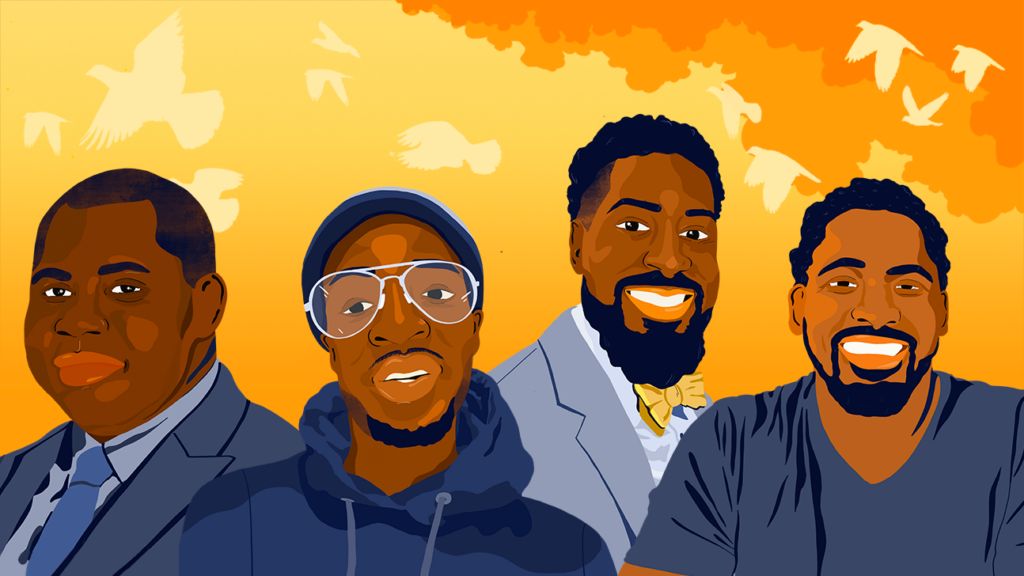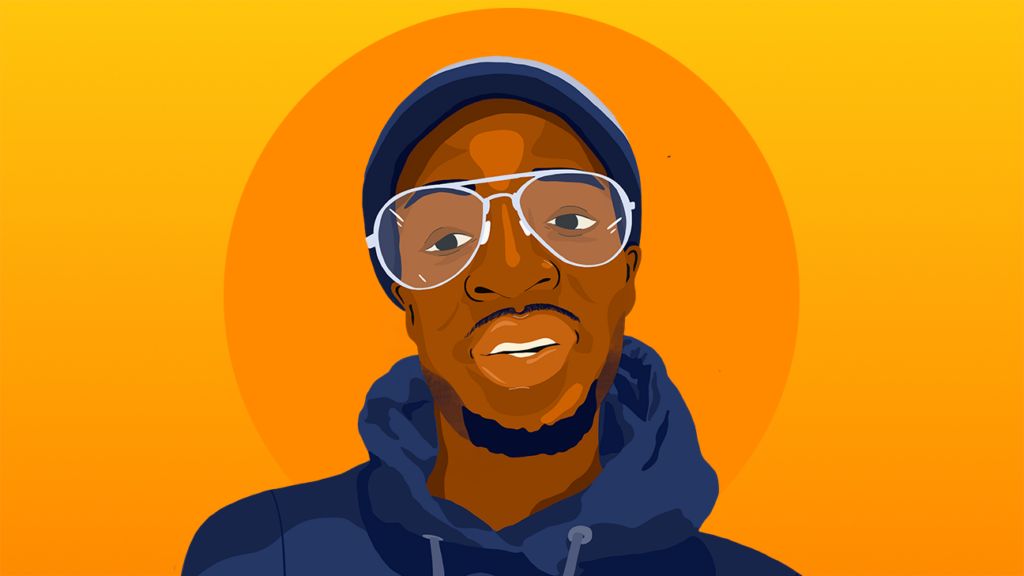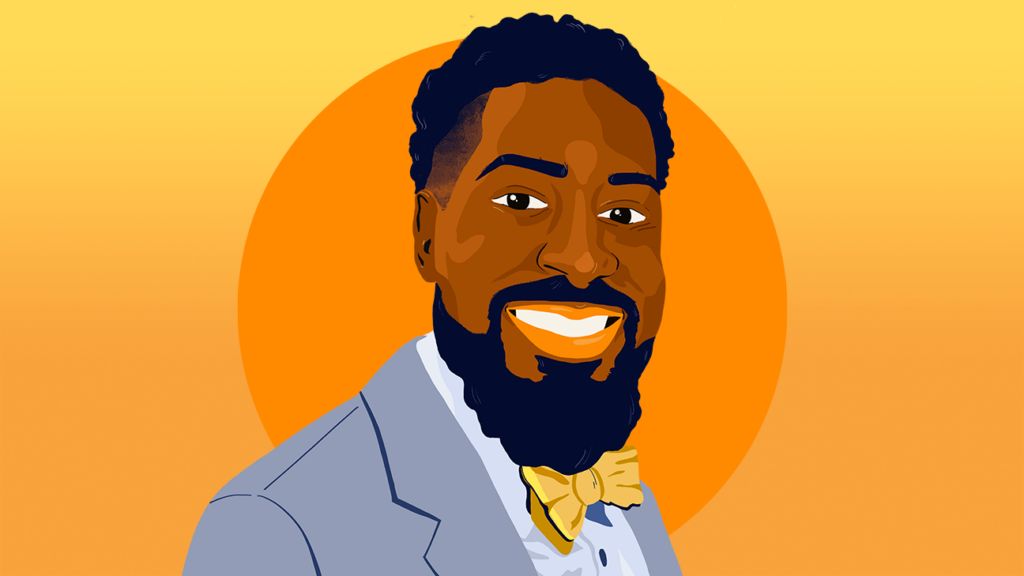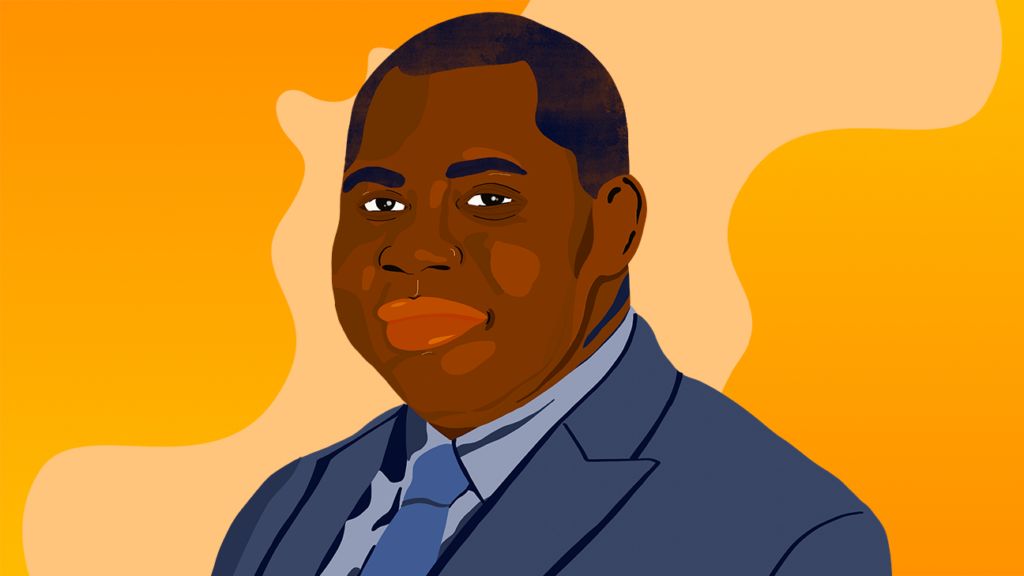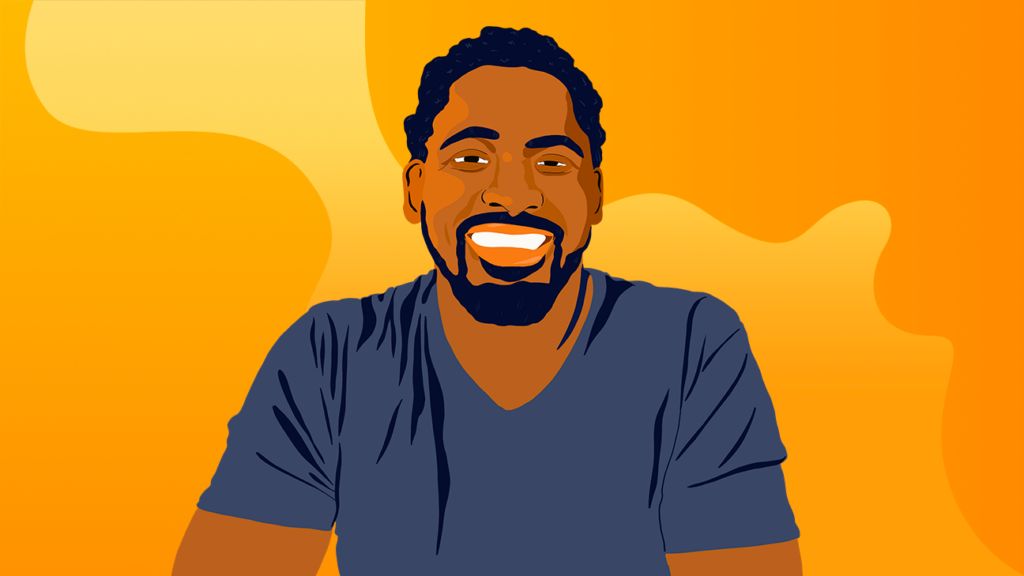Four Black dads discuss what fatherhood means to them and the legacy they’re leaving for their children.
Since 1965, the Black family has been perceived negatively — as a single-parent household headed by a Black mother who has had children out of wedlock.
This stereotypical projection was first introduced by Daniel Patrick Moynihan in his report, The Negro Family: The Case for National Action.
The Black family: The case for comprehensive statistics
Moynihan detailed prejudices experienced by Black Americans up until the 1960s and a widening gap between Black families and other groups. But Black people aren’t the only community that’s experienced dwindling numbers in family nuclear structure.
The Census Bureau found in its 2021 Current Population Survey that since 1968, the number of children living with two parents has dropped across all races.
For Black families:
- 37.9% of children lived with married parents in 2020
- 3.4% of Black children lived with unmarried parents
- 46.3% of Black children lived with their mother only
- 4.5% of Black children lived with their father only
What these numbers don’t account for is that even in families where the child lives with their mother only, that doesn’t mean those children don’t have a present father or father figure in their lives.
As Omarr K. Rambert noted in his 2021 UCLA law review article, The Absent Black Father: Race, The Welfare-Child Support System and the Cyclical Nature of Fatherlessness, “modern conceptions of [fatherhood] focus on the real-world social relationship between a man and a child.”
Reveal White, a renovation contractor living in Atlanta, is a father of three sons.
Growing up, he recalled it was just him and his mom, but his mother had long relationships. His uncles and grandfathers were also around. All the men present in his life modeled manhood and fatherhood.
White recalls his uncle being somewhat of a renaissance man. “He was military, and he was also an excellent cook. … He was always around more affluent people. So, it was him who taught me how to put on a tuxedo.”
He learned the importance of keeping a house from his grandfather, whom he characterized as a “man’s man.”
White identified what he did and did not want to pass down to his children from each man present in his life.
“You know, I didn’t get patience. I didn’t get a lot of understanding. I didn’t get the chance to, in my opinion, actually be a child,” he says.
Ron Jones, a divorced father of two, acknowledges that his personality doesn’t lend to close relationships with people, but that doesn’t mean he hasn’t learned from the folks in his life.
“I watched how my dad treated my mom growing up. I watched how my dad treated us growing up. And then as I became an adult, I was able to kind of contextualize those things,” Jones says.
He adds, “… when I became a father, I was able to appreciate it more than I did growing up, and so it was more of a relationship of observation than talking about kind of the standards of how to be a man and how to be a father.”
Andy Cezar, who is Haitian American and a married father of three, has a close relationship with his dad but says it wasn’t always like that.
“Me and my father, we had some ups and we had some downs, just kind of the growing pains of being a son,” Cezar says.
But even in those ups and downs, Cezar noted that his father encouraged him and pushed him in the right direction. He attributes that grace to their close relationship today.
“I call him, or he calls me once every other day. I mean, we’re a tight-knit family.”
Rodolfo Perez also comes from a tight-knit extended family. As a boy growing up in Panama, he was around his father, grandfather, and great-grandfather. From them, he took wisdom.
He says, “Each generation has its own thing. You know, my great-grandfather’s generation was different from my grandfather’s. My grandfathers from my father, and you know, you take the good, the bad, and the ugly, and you learn from it.”
Perez reflects that his fatherhood journey is wildly different from his forefathers because his children are growing up in America. So, he prioritizes passing on the cultural importance he grew up with to his children.
White, Jones, Perez, and Cezar approached their fatherhood journey as first watching and learning from their forefathers. They all expressed next finding ways to impart the good they were given and correcting what they didn’t like about their own experiences as children.
White, whose sons are 25, 19, and 8, made sure that he engages their interests: be it lacrosse, skateboarding, or an obsession with dinosaurs.
“I learned not per se how to skateboard, but I started researching the tricks and things like that. Started buying him the clothes, and then I actually got him sponsored by Vans.”
Making room for kids to be kids, a dash of street smarts, and a masterclass on love
White says some parents and fathers make a wrong turn by not indulging their children as children. He said, “Childhood … definitely is a short period of life, but it’s actually the most important.”
While indulging their youth, White says he also ensures that his sons are prepared for any situation.
Jones, Perez, and Cezar still have young children. They say that fatherhood for them is a source of happiness and joy.
They are each working to impart the best of themselves in their children’s lives so the kids can carry those lessons with them as they grow up.
“Most parents want [their children] to be educated book smart, but there’s a component of me that wants them to be educated [with] street smarts,” Cezar says. “I want to teach them all the good, teach them all the bad, so that way they can make the decisions based upon the circumstance that they’re in.”
For Jones, his key lesson to his 9-year-old daughter and 6-year-old son is love.
“I want for my daughter to know what it’s like for a man to love her. So that when a man her age is coming at her, she knows what love is, and it’s not just some random dude who’s cute and has smooth words … Conversely, with my son … He’s going to watch me do that, and he’s going to see how to love somebody because I’m going to love him and her.”
Character — in addition to cultural and spiritual tradition — is one of the key aspects Perez wants to impart to his children.
“When we leave this Earth, what are people going to remember us for?” he asks before answering his own question. “I think that if I want them to take anything it is always to have good character on this Earth and making this Earth a better place.”
In giving their children the very best of themselves, all four men also realize what’s stacked against them as Black fathers.
They are keenly aware of the stigmas and stereotypes of “Black fatherless homes” that threaten to define what it means to be a Black American father — whether they are true or not.
Jones, who is divorced, said he and his ex-wife decided that even though their children technically come from a “broken home,” they’re both trying to make sure they don’t cause any undue harm to them with parental drama.
But even with healthy co-parenting, he’s not naive about what’s said about absent Black fathers. To that specific stigma and stereotype, he says bluntly: “I don’t care what folks think about Black fathers.”
He explains, “With Black people, we are held responsible for our whole race. It’s wrong, it’s not fair, but it is. So, my answer to that is just like what the white people say, ‘It’s not all of us.’”
For Jones, the only opinions that matter to him are those of his son and daughter.
To any would-be detractor who considers him an absentee father who’s with his children only “half the time,” he responds: “For the time that I’m with them. I’m gonna be the best father that I can be.”
Men say modern fatherhood means optimizing for quality time and male mentorship
This two-household construction and model of fatherhood is often what’s not considered when statisticians and sociologists link the lack of a father in a single home to a child:
- living in poverty
- turning to crime
- having a truncated education
- becoming a teenage parent
While there is a strong correlation between absentee fathers and the aforementioned social outcomes, those social ills don’t affect only Black families and are not wholly to blame on Black fathers.
White, who is now engaged, has been co-parenting with his sons’ mothers from his own home.
He says it’s important for Black people to realize that even if your father was absent, someone stepped in to fill the role and provide a semblance of structure.
“It could have been your uncle, and he turned out to be your [surrogate] dad who took and assumed that role.”
White said more Black men need to stand up to combat the stigma about them being absent and set an example in fatherhood or mentorship.
Cezar and Perez, who are both married, are big on leaving their children with an ancestral legacy.
Cezar says, “I’m a part of that legacy … our forefathers being from Africa, then descendants of Haiti, and now here in this country, I see being a Black father as just as another chink in the chain of how well our family is populating the Earth.”
For Perez, legacy means making sure his children understand the old customs, traditions, and spiritual practices of his native Panama, and even further, the African ancestry that runs through their bloodline.
As an Ifá (Yoruban African religion) practitioner, Perez said his spiritual practice and discipline have simplified his life as a father.
“You don’t have to be religious, but it’s either God within or God without,” Perez says, repeating the wisdom of his grandfather. “You can tell what man moves with God without because his decisions are so destructive. That man who works with God within works with harmony.”
White sees his sons as an extension of himself.
“That they also are the only ones who can ever stand up and 100% defend my name, defend what I stand for, and actually propagate what I stood for in my in my death,” he says.
White, Jones, Perez, and Cezar all have a long view of the ways in which they’re combating the stigma against Black fathers by legacy building. Jones looks at his role as a father to his children and citizen in the world completely from the aspect of love.
“I’m going to serve those two children in a way that they know how to love,” he says.
Nikesha Elise Williams is a two-time Emmy award-winning producer, an award-winning author, and producer and host of the Black & Published podcast. Her latest novel, “Beyond Bourbon Street,” was awarded Best Fiction by the Black Caucus of African-American Librarians in the 2021 Self-Published eBook Literary Awards. It also received the 2020 Outstanding Book Award from the National Association of Black Journalists (NABJ). Nikesha’s debut novel, “Four Women,” received the 2018 NABJ Outstanding Literary Work Award and the Florida Authors and Publisher’s Association President’s Award for Adult Contemporary/Literary Fiction. Nikesha is a Chicago native. She attended Florida State University and graduated with a BS in communication: mass media studies and honors English creative writing. Nikesha writes full time and has bylines in The Washington Post, ESSENCE, and VOX. Nikesha lives in Jacksonville, Florida, with her family.

